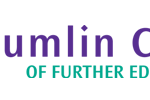It has been said that the only consistent thing in life is change. If we are to be successful in overcoming the many challenges that life throws our way, then we must learn to be adaptable.
This is because change is part of out natural condition: a person is rarely the same at the start of their life as they are at its end. Indeed, this is the message that many personal development courses teach if we are to attain happiness and fulfil our personal potential, then we must consciously pursue personal growth by expanding our self-awareness and knowledge, and by improving our health, wealth and personal skills.
What does personal and professional development involve
The ultimate goal of any personal development course is to help participants to self-realise: that is, to live consciously at their full potential. This is no easy task. Most peopletend towards self-restriction as a result of biases, fears, insecurities, and habits. The key is to free them from these self-imposed limitations by encouraging a greater sense of self-belief, along with a willingness to engage in activities that will be of benefit to them.
Many professional development programmes begin this process by allowing students to examine their personality type and personal skills. By assessing their individual strengths and weaknesses, course participants can identify the areas they need to work on along with those they should learn to celebrate.
All courses in personal development will attempt to instill confidence in participants, as self-belief counteracts the limitations brought about by self-doubt. A BA in Personal and Professional Development will equip students with some of the practical tools necessary for them to rid themselves of self-destructive habits. Study areas include Arts and Ideas; Professional Focus, and Adult Learning and Human Development. Students will often be assigned a personal mentor who will work with them in selecting the modules that best suit the needs of the student.
By working on their confidence-building skills, students will gradually learn to communicate in a clearer and more effective way, thereby allowing them to take more control of situations that can impact on their future (e. g. client meetings presentations, interviews, etc. ). In addition, learning to exhibit self-assertive behaviour can also result in course participants enjoying a more positive and focused approach to both personal and business challenges.
Why do it
Professional Development courses teach participants to engage in effective communication with clients, colleagues and management; give them a personal development plan along with guidance on how to turn the plan into action; offer training on how to deal with difficult reactions from others; develop a greater degree of self-confidence; and equip them with skills and techniques for dealing with conflict and confrontation all of which can be applied in numerous practical situations in everyday life.
What comes next
Those who complete a part-time course in Personal Development can expect to feel more positive, energised, proactive and confident when confronting and resolving challenging situations.
While such results will obviously be highly beneficial to anyone s life, they are of particular advantage to anyone involved in a leadership or management role. To this end, personal and professional development are somewhat interwoven.
Those involved in a community/social care setting will also gain much from a Personal Development course as demand is often made on the individual to relate to people at various levels of personal development in order respond appropriately to their needs.
At a glance
Most part-time Professional Development courses last for between 10 and 12 weeks. It is also possible to enroll in 2- or 3-day long confidence building workshops. A BA in Personal and Professional Development can take between 4 and 6 years to complete, though students are largely afforded the time to study at their own pace.














